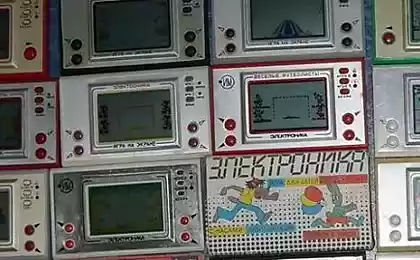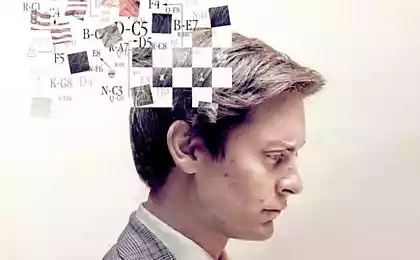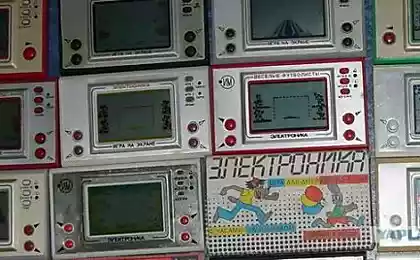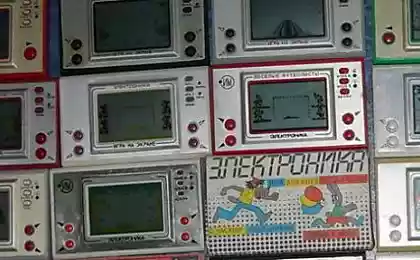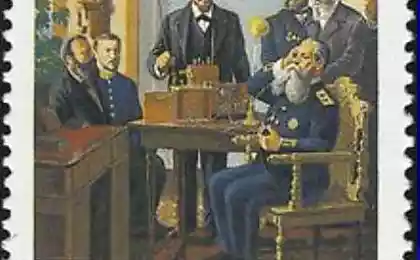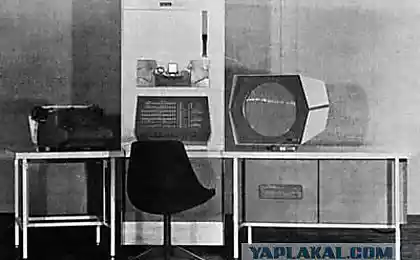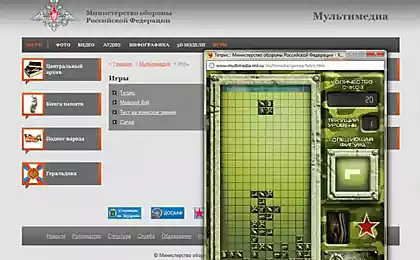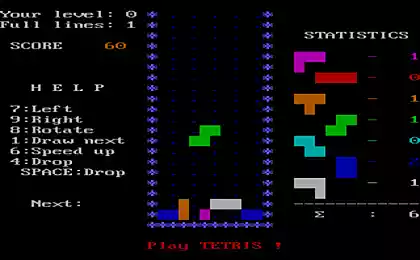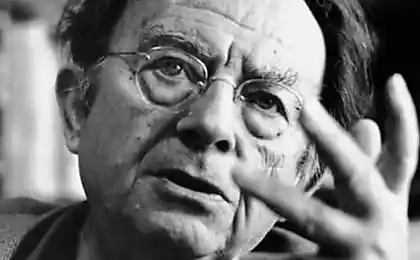The man who created the "Tetris"
Source: Tozai Games i>
I'm driving a Tesla with the license plate, which is simply written «TETRIS». Alexey Pajitnov, the creator of this legendary video game, sitting next to me.
- Click on the gas, click on the gas! - Screaming bearded Pajitnov in denim shirt - Faster!
Earlier in the day, after dinner in the house of a mutual friend, 58-year-old Pajitnov readily persuaded us to try it Tesla peaceful outskirts of Bellevue, Washington, where he lives. He encouraged us to drive faster, which is why in my breast a feeling of weightlessness whenever the road went downhill.
At dinner we discussed how Russian fought against the Nazis during World War II and a long love Pajitnov classical puzzle game Lode Runner , while he participated in the development of artificial intelligence and speech recognition platform during the Cold War, and many other games besides the "Tetris", on which he worked - for example, Yoshi's Cookie . And many other things.
A quick Internet search for «Alexey Pajitnov» provides links to articles and interviews that focus only in creating them, "Tetris", which undoubtedly remains the best-selling video game of all time. Personal meeting with Pajitnov made me interested in everything else. What is the life of Alexey Pajitnov in addition to "Tetris»?
He drives like a madman

Source: Tozai Games i>
If there is one constant in his life, it is the tendency to drive with a crazy speed. Sheila Boten, president Tozai G ames , gave me some idea of what lies beyond the driving style Pajitnov. Boten began its work in the video game industry in the now defunct Bullet-Pro of Software , where her main task was coordination of American and Russian immigration in the early 90s, so Pajitnov was able to move to the United States and join the team Bullet-Proof, sponsored his work visa.
- All drove like crazy - Boten told me about his experience of staying in Moscow, where she was scared to death, traveled with Pajitnov in its Fiat clone of the Soviet era. - And Alex was no exception. He drove the car like a madman. I was terribly frightened. I said, "Alex, I do not want to die in Russia. Be careful. »
- Sheila - he said, laughing - I can tell you that you would prefer to die. You would not want to be in a Russian hospital.
Everything was dark and dirty then, especially for those who first came there from the West. When Boten and her colleagues from Bullet-Proof, Scott Tsumure, it was necessary to get to the train station for the trip to St. Petersburg, Pajitnov insisted to accompany them to the station, in spite of their protests.
Boten recalls how Tsumura, Pajitnov and she went to the station.
- It was chaos, - she said. - People around us have seen the Americans with suitcases and they knew that they were things that they needed. Alexei force paved the way to the train, literally bumping into a crowd of people and pushing forward our luggage.
-You Do not understand - he told them.
After our fun trip to Tesla Pajitnov I asked about his current workload. B>
- I do not overloaded [work], - he said.
Compare that to his working life in the time of the former Soviet Union. Work in the State Academy of Sciences in Moscow, Pajitnov get up between 7:30 and 8:00.
- Maybe later, because I worked every day until midnight - he explained.
He ate sausages, eggs and cottage cheese for breakfast. Then he did some small jobs or work at home, and only after this is shown in his office somewhere at 10 am. The tiny space in which he was ordered to work, it was "extremely crowded." It was a room designed for four or five jobs. Most of the time she had to accommodate 15 scientists.
- Yes, we do not have any place - laughing Pajitnov. - I shared a desk with three other people. So I left my job late, when the table is finally freed.
Then, in relative peace, he set to work on the development of artificial intelligence and automatic speech recognition, an area which, as he says, to some extent, "is still very primitive».
In short, he found a job "heuristic". But he struggled with the reality, because his experiments were primarily military base. Although scientists are not always the Academy knew exactly how their fundamental discoveries can be applied later, it was rumored. "Legends", as he called them Pajitnov.
One such legend , which went around the scientists of the Academy, was the fact that the automatic speech recognition - he equated it to the inverse image of Siri - implemented at the fighters, working with high overload. Pilots thus be given the opportunity to fly a plane using the vote if manual control was impossible. So the story goes.
It was, however, very real, "sad application" work Pajitnov KGB, which has repeatedly sent representatives from the research wing of the cramped office that Pajitnov shared more than a dozen other members of the Academy.
Pajitnov explained: despite the fact that the KGB has always sought to conduct wiretapping in search of valuable information, the state of technology at the time did not allow to establish a permanent audio recording. Therefore, the KGB was very interested in the application of experiments Pajitnov speech recognition as part of a sound system that would automatically starts recording, if were uttered certain keywords that are considered dangerous to the State or exposing the speaker.
It was a job, which is said Pajitnov, he and other scientists of the Academy, "of course, tried to avoid».
At least he Pajitnov was clearly apolitical. But he also felt discomfort due to the fact that at that time a kind of nationalism expect from any Russian, not to mention the guy at the Computing Center of the Academy of Sciences.
Boten told me how she and Pajitnov went to the Kremlin to see it resting body of Vladimir Lenin.
- Alexei had a hard time on the day - told me Boten. She recalls asking his friend and colleague, as they stood in the queue, he visited the Mausoleum of Lenin in his youth.
In the past decade, Russian children went to binding excursions in the Mausoleum to contemplate the corpse ennobled despot. But Pajitnov found a way to avoid it.
- I've always been sick that day - he said Boten.
- He was never able to talk openly about it, of course - explained Boten discomfort Pajitnov regarding tyrant - because he could suffer. But even on that our tour it was hard.
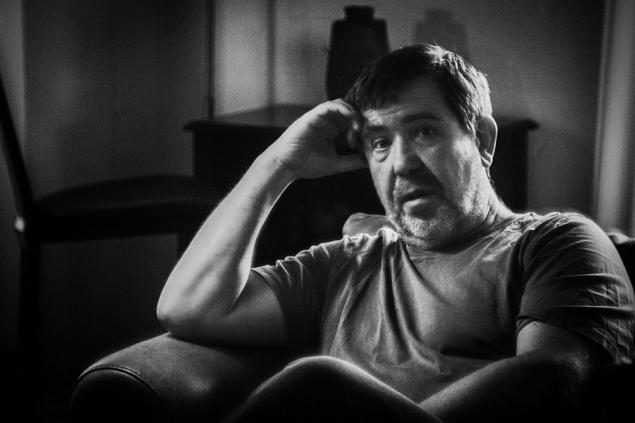
Source: Tozai Games i>
Over time, the Academy of Sciences Alexei got access to their own personal computer, which he could use "without waiting for the presence of someone behind him." Since he had to test the artificial intelligence software for speech recognition and other programs on which he worked, Pajitnov did that, playing video games. He experimented with this new computer, developing games on it using the programming language Pascal.
Some of these early experiments with video games, which he developed on his personal computer, were later published as сборник «Microsoft Entertainment Pack: The Puzzle Collection». In this issue, there was no mention of the fact that the games were created for low-tech computer in the Soviet Union.
All this contributed to the fact that subsequently using other Pokhil'ko Vladimir, Russian clinical psychologist with an interest in the study of man-machine interactions, Pajitnov eventually создал the most successful video game in history.
Tetris was officially released by the Academy of Sciences in June 1984, after initially spread among academics and scientists in the field of computer technology on diskettes. Like a puzzle, the essence of which was in the ratio figures of various shapes, "Tetris" won these intellectuals. After all, it was a game built on ancient forms, taken directly from the Platonic idealism.
The game was seen in 1988 at the Consumer Electronics Show in Las Vegas, the founder of Bullet-Proof Software Henk Rogers , which, briefly, began to spread the teachings of tetramino in the world, ripe for fresh dependence. Bullet-Proof released the game in America in 1989. It was established that has sold more than 70 million physical copies of the franchise, as well as carried out about 100 million mobile game downloads worldwide.
Because the game was created during business hours at the state machine, the Soviet government said about their rights as "Tetris" and the accumulated as a result of countless millions of profits to copyright. So, despite its sudden international recognition as a developer, Pajitnov remained essentially simple worker when he joined Rogers and Bullet-Proof, immigrated to America in 1990 on a work visa, which are sponsored. Six months later, Pajitnov brought his wife Nina and sons Peter and Dmitri in Bellevue, Washington.
Around the same time, Vladimir Pokhil'ko, which Pajitnov year earlier founded the Moscow company for software development called AnimaTek, and immigrated to the United States, settling in the Bay Area in San Francisco. It is noteworthy that Pokhil'ko credited with the title of co-founder of "Tetris" and he, at least, inspired Pajitnov further transformation of "Tetris" in a commercial product.
Pajitnov and Pokhil'ko were supposed to meet at CES 1990 in Chicago, where Boten was the site of the exhibition, along with Pajitnov, and where the "Tetris" got its first public recognition outside of Russia. She remembers how Alex and Vlad drank and danced every night trade show. They created a hit.
- This was all Pajitnov - Boten told me, and this is quite consistent with the person to conquer the world of creation in which you can play well only in a state of total awareness. - He lived here and now. Here and now.
However, on the transition to the Western lifestyle required time. Boten shock Pajitnov remembers when she first brought him to an American grocery store.
- He was so impressed, - she said. - He was really surprised at how many things you can buy there.
It Boten further helped Pajitnov get used to his new life. She organized his visit to the dentist. She explained, for which he received a huge fine, which he found by a janitor after three days left in the rented Cadillac parked at a fire hydrant. She helped him to repel a variety of chatty entrepreneurs who wanted to capitalize on his fame. And then one day, while Pajitnov worked in an office in Bullet-Proof Software, there appeared an agent of the Federal Bureau of Investigation, who wanted to talk to him "about any harassment by the KGB."
"Talking with the FBI in the flesh" made a great impression on Pajitnov. The agent even organized follow-up meeting at which Pajitnov wife Nina, an English teacher, also questioned on the subject of clandestine relations with Soviet intelligence. But the feds quickly realized that they are wasting resources on careless developer who spent all his time thinking about puzzles, and who did not have any secrets of the KGB.
«I interrupt work and play a little in any game. Then I realize that I need to finish the job. » Blockquote> By 1996, when the rights to" Tetris "through a complex legal process after the collapse of the Soviet Union were finally transferred Pajitnov, he began to develop games for the next Xbox console from Microsoft. < br />
His work in Microsoft remained "essentially the same" as it was in Soviet Russia. He came to the office every morning to 10 in the morning and worked until about 13:30, when he went to lunch. The day ends at 10 or 11 pm.
- So I used to work - he told me - and so I worked all his working life. It's kind of a way of life.
I expressed some surprise about working 12 to 14 hours a day, even in America, but then Pajitnov said that to take breaks during the day. To play a video game, of course.
- Sometimes I get tired - he admitted. - I stop my job and play a little in any game. Then I realize that I need to finish my work. I return to my work and go forward.
Pajitnov was responsible for developing their own projects in Microsoft, «generator of ideas."
- Basically, I no longer have to be programmed, - he said.
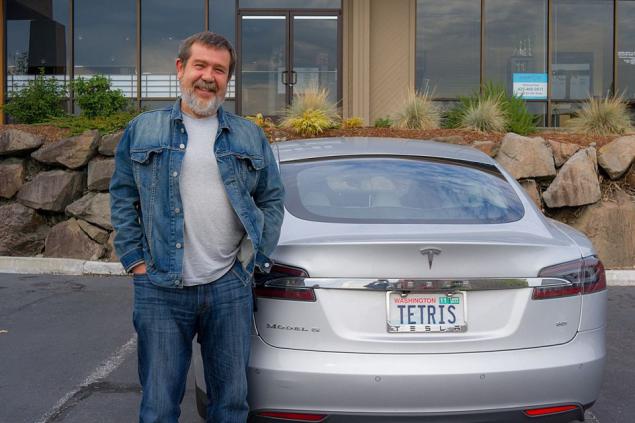
Source: Tozai Games i>
Then Microsoft started to develop Xbox.
- I do not have to like. I am interested in logic games. And the Xbox was not created for them, - he said. - I tried to find a peaceful game on which to work. I do not like shooters.
But, according to Alexei, Microsoft has been nowhere near as successful manufacturer of consoles and games for them, how she finally managed to become.
- Microsoft has with the games it was not a very well - he says of those early days. - They did not understand their essence. They were not enough specialists. Somehow they did not hire the right people. And I felt a little stranger. The first couple of years of its development, Xbox era was a complete disaster. In Microsoft launch and close a lot of both good and bad projects. Everything was turned upside down.
He felt a confrontation with all groups in which he had to work.
- Nobody wanted my participation in their projects. And I do not want anyone else involved in the mine, - he said.
PC puzzle were put on the backburner, because Microsoft was armed for battle consoles.
- All my projects have a low priority. "We need to work on the Xbox! Xbox! »- He said, imitating the battle cry, distributed on campus Microsoft. By the time the Halo at the end of 2001, Pajitnov said that Microsoft «realized what was happening».
- I was at the starting point, - he continued, - when they make a lot of mistakes and unsuccessful moves.
At that time, as Pajitnov settled down at Microsoft, lives his old friend and business partner Vladimir Pokhil'ko turned tragic. In 1998 Pokhil'ko killed his wife and son and then himself for still unclear reasons. What happened that night in the south of Palo Alto, in the territory of the house Pokhil'ko shocked his family. Brutal murder made it all even more egregious.
As at the time reported newspaper «San Francisco Chronicle», «Pokhil'ko hit Fedotov, a popular yoga instructor, and Peter, a disciple of the seventh grade, a hammer and repeatedly struck him with a hunting knife wounds, apparently, when they went to bed. Then the same knife he cut his throat ».
- It is inconceivable that someone is capable of doing this to yourself and your child - then said a police spokesman Palo Alto Tami Gage.
"If we talk about Vladimir" - wrote me later Pajitnov by e-mail - "I can say that we have always been friends, colleagues, partners with good and warm relations».
By the time the dot-com bubble burst immediately after the start of the new millennium, Pajitnov already had sufficient income from the "Tetris" and he did not have to sell their options.
- In principle, I became quite wealthy, having some Microsoft shares without my fees.
It is a kind of felt that it was time to part with Microsoft. And quit. B>
But in 2005, Pajitnov returned, albeit briefly, as a contractor for the development of Microsoft Hexic, games like "Tetris" for Xbox 360.
- Hexic was pretty good - he says. - It was an interesting game. But Microsoft is sitting on a huge pile of intellectual property. They do not have the brains or hands, which would really have benefited, given these developments a second or third life, which is easy to be achieved.
- It's sad - he continues - Because some of Microsoft games were designed by me. And the work of many of my colleagues who worked there, was wasted. It is a pity.
When we approached the end of our conversation, I could not help but ask about the recent announcement movie a > "Tetris". To me it looks like a missed opportunity - a story about the falling blocks, and not about the person who created the game secretly working for the Soviet government.



